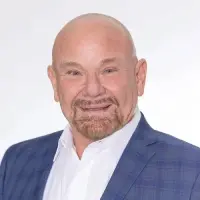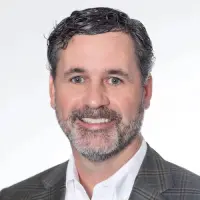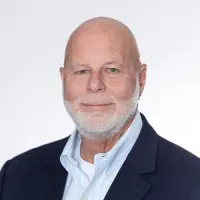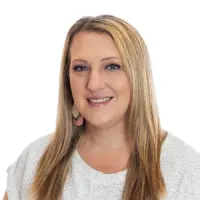My brother was self-admitted exactly a week ago from today. The patient suffers from substance abuse disorder with methamphetamine and opiates. This review is geared towards loved ones and family, not the ongoing treatment within the facility. The staff is unfriendly and se ...
About Woodlake Addiction Recovery Center (Abbeville)
Clients with severe addiction symptoms may be required to enter detox before receiving treatment, but it may also be entered voluntarily. Clients in detox stay onsite and receive 24 hour care and observation from the medical staff to ensure they are safe and comfortable during what can prove to be a difficult and painful process. Clients may then transition from detox to another care program.
Inpatient care gives clients a safe and secure place to live on campus for the duration of their treatment. While under 24 hour monitoring from staff, a client’s needs are met so they can put their energy into their treatment program. Treatment revolves around individual and group therapy, 12 step programs, life skills training, and other educational opportunities.
The inpatient program includes specialized care for working professionals from high stress occupations. This group meets once a week.
PHP is a form of outpatient therapy where clients come to the facility on a regular schedule to receive highly structured care. Clients in this program continue to live at home but receive the same types of care they would in the inpatient program. PHP is sometimes used as a transitional step for those leaving inpatient care who are entering the intensive outpatient program (IOP) or returning to their daily lives.
IOP is designed for both people who are entering a recovery program for the first time, who have relapsed, or who have completed the inpatient program. Clients continue to live at home and live their everyday lives. Clients receive the same care as the inpatient program, emphasizing group therapy, education, and activities.
Latest Reviews
Rehab Score
Accepted Insurance
Other Forms of Payment
Private insurance refers to any kind of healthcare coverage that isn't from the state or federal government. This includes individual and family plans offered by an employer or purchased from the Insurance Marketplace. Every plan will have different requirements and out of pocket costs so be sure to get the full details before you start treatment.
Self-pay involves paying for treatment out of your own pocket. You can use savings or credit, get a personal loan, or receive help from family and friends to fund your treatment. If you don't have insurance or your insurance plan doesn't cover a specific program, self-pay can help ensure you still get the care you need.
Military members, veterans, and eligible dependents have access to specific insurance programs that help them get the care they need. TRICARE and VA insurance can help you access low cost or no cost addiction and mental health treatment. Programs that accept military insurance often have targeted treatment focused on the unique challenges military members, veterans, and their families face.
Medicaid is a state based program that helps lower-income individuals and families pay for healthcare. Medicaid covers addiction treatment so those enrolled can use their coverage to pay for rehab. When a program accepts Medicaid the client often pays very little or nothing out of their own pocket.
Addiction Treatments
Levels of Care
Outpatient Programs (OP) are for those seeking mental rehab or drug rehab, but who also stay at home every night. The main difference between outpatient treatment (OP) and intensive outpatient treatment (IOP) lies in the amount of hours the patient spends at the facility. Most of the time an outpatient program is designed for someone who has completed an inpatient stay and is looking to continue their growth in recovery. Outpatient is not meant to be the starting point, it is commonly referred to as aftercare.
Knowing that socialization prior to treatment was limited to isolation or others that would not confront the addiction, daily communal living and sharing of responsibilities are emphasized in the person recapturing the common welfare of self in relationship to others. Woodlake’s holistic approach affords that process to begin starting from the initial evaluation, individualized treatment plan, specific tasks and assignments correlating all aspects of the personality, to a discharge plan incorporating those learned behaviors into a supportive recovery based environment.
Woodlake’s Intensive Outpatient Program, focuses on the disease concept which affects the individual physically, psychologically, and spiritually, and is designed for patients who are new to recovery , completed Woodlake’s Inpatient/ Residential program, or have relapsed. Woodlake's IOP includes a comprehensive evaluation and other assessment as needed to develop a treatment plan to meet and address individual needs. IOP clients are engaged in the recovery process while continuing to maintain their daily lives at work, school, or home and supports continued engagement with their family. Treatment consists of a semi-structured environment providing guidance through group psychotherapy with individual and family sessions as needed. Patients are given assignments to address the physical, mental, emotional, and spiritual deficits that accompany addiction.
Clients enrolled in rehab aftercare programs have completed high-level treatment and are typically in the maintenance phase of their recovery, receiving customized services designed to support their sustained sobriety. Case managers and care teams typically begin to plan for the client's rehab aftercare services early in the treatment process to ensure the client's fluid reentry into their home, workplace, and community. These programs evolve as clients' needs change, and frequently include peer coaching, relapse prevention, and career counseling.
12-step programs are addiction recovery models based on Alcoholics Anonymous (AA). A number of substance abuse programs (including some drug and alcohol rehab centers) use the 12 steps as a basis for treatment. Beginning steps involve admitting powerlessness over the addiction and creating a spiritual basis for recovery. Middle steps including making direct amends to those who've been hurt by the addiction, and the final step is to assist others in addiction recovery in the same way. 12-Step offshoots including Narcotics Anonymous (NA), Cocaine Anonymous (CA), Dual Recovery Anonymous (DRA), Sex & Love Addicts Anonymous (SLAA) and Gamblers Anonymous (GA). Woodlake Addiction Recovery Center is based on the Traditions Principles of the 12-step programs and the founding Oxford Group, and is based on the four absolutes: Honesty, Unselfishness, Love and Purity.
Initial phases of rehab treatment often require 24-hour clinical care in Louisiana. This supervised treatment offers three main benefits. Medical staff can provide medications to treat withdrawal. Clients can also benefit from having 24-hour nursing staff available to treat any other physical symptoms. Lastly, this setting ensures that professionals are constantly available to address any emotional or mental health issues related to the addiction or co-occurring disorders.
In order to withdraw from certain substances and for patients that have been using an addictive substance for a longer period of time, it may be necessary for patients to undergo medically supervised detoxification. Woodlake will administer the appropriate medications to prevent severe withdrawal symptoms. At an appropriate time during the detoxification process Woodlake’s professional staff will conduct a comprehensive assessment and evaluation to determine the best level of treatment for the individual client. During this phase of treatment patient’s are introduced to educational information about the disease of addiction and 12-Step recovery.
Treatments
The goal of treatment for alcoholism is abstinence. Those with poor social support, poor motivation, or psychiatric disorders tend to relapse within a few years of treatment. For these people, success is measured by longer periods of abstinence, reduced use of alcohol, better health, and improved social functioning. Recovery and Maintenance are usually based on 12 step programs and AA meetings.
While each drug rehab in Louisiana offers unique elements, recovery support often follows a similar pattern. Detox is followed by inpatient and/or outpatient care, then aftercare support is provided once the participant completes the initial program.
Many of those suffering from addiction also suffer from mental or emotional illnesses like schizophrenia, bipolar disorder, depression, or anxiety disorders. Rehab and other substance abuse facilities treating those with a dual diagnosis or co-occurring disorder administer psychiatric treatment to address the person's mental health issue in addition to drug and alcohol rehabilitation.
A combined mental health and substance abuse rehab has the staff and resources available to handle individuals with both mental health and substance abuse issues. It can be challenging to determine where a specific symptom stems from (a mental health issue or an issue related to substance abuse), so mental health and substance abuse professionals are helpful in detangling symptoms and keeping treatment on track.
Opioid rehabs specialize in supporting those recovering from opioid addiction. They treat those suffering from addiction to illegal opioids like heroin, as well as prescription drugs like oxycodone. These centers typically combine both physical as well as mental and emotional support to help stop addiction. Physical support often includes medical detox and subsequent medical support (including medication), and mental support includes in-depth therapy to address the underlying causes of addiction.
Programs
Adult rehab programs include therapies tailored to each client's specific needs, goals, and recovery progress. They are tailored to the specific challenges adult clients may face, including family and work pressures and commitments. From inpatient and residential treatment to various levels of outpatient services, there are many options available. Some facilities also help adults work through co-occurring conditions, like anxiety, that can accompany addiction.
Young adulthood can be an exciting, yet difficult, time of transition. Individuals in their late teens to mid-20s face unique stressors related to school, jobs, families, and social circles, which can lead to a rise in substance use. Rehab centers with dedicated young adult programs will include activities and amenities that cater to this age group, with an emphasis on specialized counseling, peer socialization, and ongoing aftercare.
Recovery is most successful when clients feel accepted and validated by their peers and treatment providers. Facilities that offer LGBTQ-inclusive programming are committed to creating a safe space where everyone can grow and recover without fear of judgment or discrimination. They will have dedicated policies in place to create a safe and supportive environment that fosters free expression.
Serving in the military is both mentally and physically challenging, and can result in trauma that persists even after combat ends. Military programs are tailored to the specific and often complex needs of active duty personnel, veterans, and military families. Clients often access these programs through the U.S. Department of Veterans Affairs (VA).
Clinical Services
Group therapy is any therapeutic work that happens in a group (not one-on-one). There are a number of different group therapy modalities, including support groups, experiential therapy, psycho-education, and more. Group therapy involves treatment as well as processing interaction between group members.
In individual therapy, a patient meets one-on-one with a trained psychologist or counselor. Therapy is a pivotal part of effective substance abuse treatment, as it often covers root causes of addiction, including challenges faced by the patient in their social, family, and work/school life.
Couples therapy focuses on helping the couple develop skills that will improve the relationship. These include communication, conflict resolution, and anger management. Couples also identify dysfunctional behaviors and work to eliminate them.
Families are invited to attend a Family Weekend to receive education regarding the disease of addiction for family members and participation in family group sessions. Woodlake's Family Education model focuses on the disease concept, spirituality, the loss of personalities, defenses, neurological chemistry of addiction, the principles of the 12 step programs, and includes specific task to assist with redefining self and recovery. The Family Education group work is designed to allow the family members to explore their pain in the midst of the addiction, openly and honestly discuss resentments, determine proper amends and realistic expectations, and devise specific means to continue the recovery process while improving the relationship and enhanced communication.
Amenities
-
Private Setting
Staff & Accreditations
Staff

Randy Gomez
Chairman & CEO

Blain Houston
CFO

Randal Gomez
VP of Business Development

Jacob Wood, Dr.
Medical Director

Edward Antherson
Diector Of Admissions

Savannah Smith, RAC
Assistant Director of Eduction
Accreditations

The Commission on Accreditation of Rehabilitation Facilities (CARF) is a non-profit organization that specifically accredits rehab organizations. Founded in 1966, CARF's, mission is to help service providers like rehab facilities maintain high standards of care.
CARF Accreditation: Yes
Accreditation Number: 264774

State Licenses are permits issued by government agencies that allow rehab organizations to conduct business legally within a certain geographical area. Typically, the kind of program a rehab facility offers, along with its physical location, determines which licenses are required to operate legally.
State License: Louisiana
License Number: 10028
Contact Information
1314 North Lafitte Road
Abbeville, LA 70510




